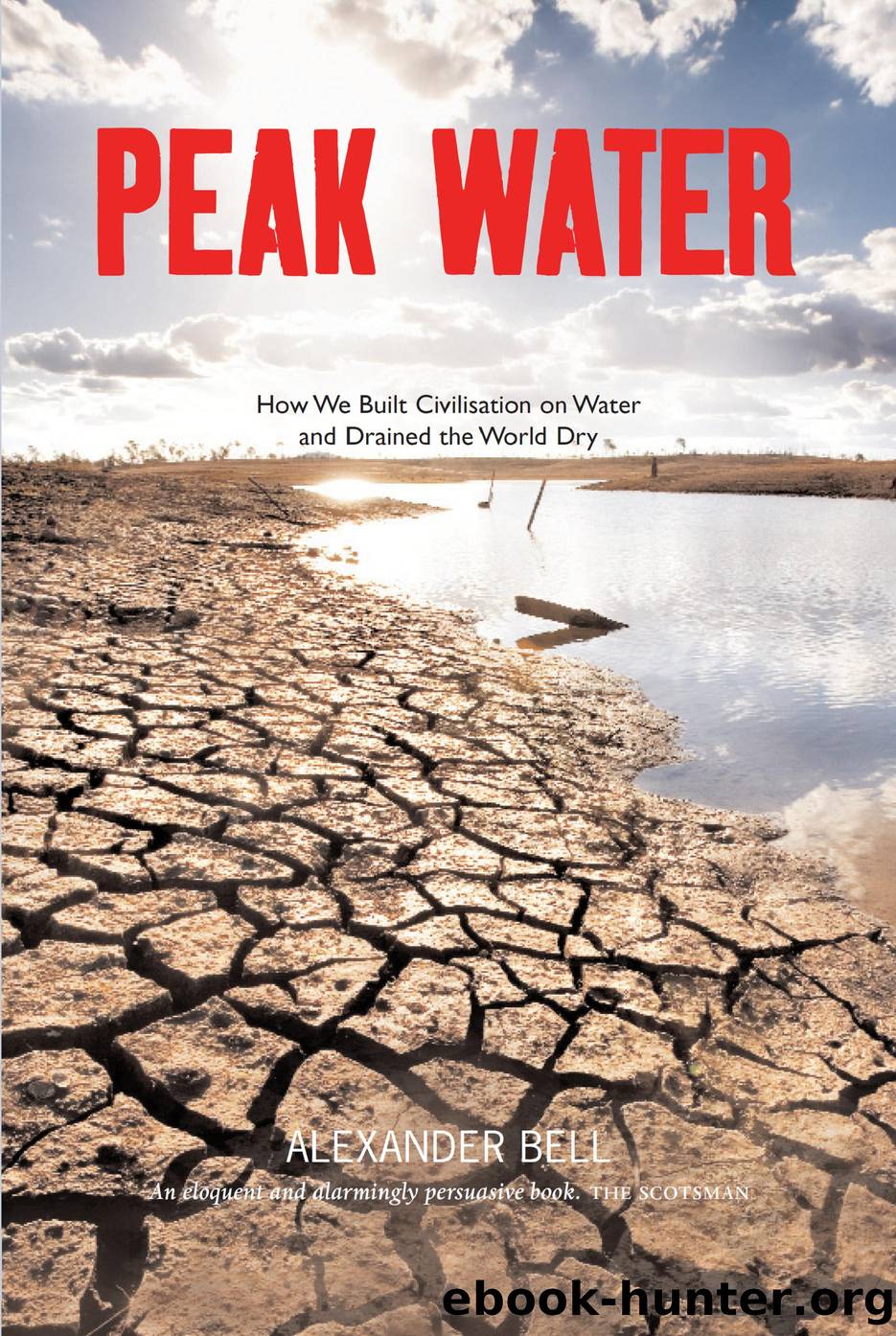Peak Water by Alexander Bell

Author:Alexander Bell [Bell, Alexander]
Language: eng
Format: epub
Tags: Drought & water supply
Publisher: Luath Press Ltd
Published: 2012-09-15T00:00:00+00:00
Chapter Twelve â Dams and Politics
A STRANGE THING OCCURRED when dams were built on the Rhine in the 19th and early 20th centuries. People not only celebrated their completion with festivals and grand ceremonies, but they would come back, every Sunday, and admire the great slabs of engineering. From the outset, the dam was a good day out. They were the new pyramids.
German identity was closely entwined with nature. The forest and rivers were part of the Germanic soul. Goetheâs Faust is torn between the business of rational control and romantic desire, and the crowds on the dam would have known this yearning for a romantic, green alternative to their dirty cities.
All around, Europe was turning to its water for relief. People sought out the purifying waters of spa towns, where they would drink or bathe in mineral pools. This set the foundation for our modern tourism industry. It led to the rail companies building tracks to the spas, and thus the machinery of the modern state begins to turn its attention to the business of pleasure and happiness. For those who couldnât leave town, bottled mineral water was brought to them.
Europeans adopted a view of water with echoes of the Arabic/ Islamic attitude. They came to admire the blue water, and to connect to the idea of green nature. The day-trippers on the dam were toying with their ancient past of pagan rituals and woodland frolics. They were staring into the flow and looking back in time, to an age that wasnât regimented by the factory clock. This was innocent stuff â the immediate pleasure was from the fresh air and possibly a hot dog and ice cream for lunch. But they stood at the beginning of a particular phase in human history, when the business of controlling water would become highly political.
Water control has always been close to power. One academic argues that a particular kind of political structure grew out of water control. Karl Wittfogel could easily have been the name of one of the trippers to the dams. He was German and lucky enough to escape to America before the Second World War. In the 1950s he published a book that set the tone for water historians for decades to come. To read him now is to be flung back into the mid-20th century, when the world was viewed through strict ideological spectacles. The Marxist theory, and counter arguments, all look a bit out of focus now, the eyes blurring at concepts once so essential to the world, which are barely mentioned today.
Wittfogel made an important assertion. As a graduate, he began his career immersed in Marxist theory. Mid-career, he lost faith and switched allegiance to liberalism. His doubts were provoked by a paradox â Marx argued that in all societies the workers would inevitably revolt and assume control over the means of production. While there was plenty of evidence of revolution in Europe, there was barely any in Asia. For Marx to be right, it had to be universal, yet it apparently wasnât.
Download
This site does not store any files on its server. We only index and link to content provided by other sites. Please contact the content providers to delete copyright contents if any and email us, we'll remove relevant links or contents immediately.
| Automotive | Engineering |
| Transportation |
Whiskies Galore by Ian Buxton(41949)
Introduction to Aircraft Design (Cambridge Aerospace Series) by John P. Fielding(33097)
Small Unmanned Fixed-wing Aircraft Design by Andrew J. Keane Andras Sobester James P. Scanlan & András Sóbester & James P. Scanlan(32770)
Craft Beer for the Homebrewer by Michael Agnew(18205)
Turbulence by E. J. Noyes(7991)
The Complete Stick Figure Physics Tutorials by Allen Sarah(7344)
Kaplan MCAT General Chemistry Review by Kaplan(6907)
The Thirst by Nesbo Jo(6891)
Bad Blood by John Carreyrou(6589)
Modelling of Convective Heat and Mass Transfer in Rotating Flows by Igor V. Shevchuk(6412)
Learning SQL by Alan Beaulieu(6245)
Weapons of Math Destruction by Cathy O'Neil(6223)
Man-made Catastrophes and Risk Information Concealment by Dmitry Chernov & Didier Sornette(5962)
Digital Minimalism by Cal Newport;(5718)
Life 3.0: Being Human in the Age of Artificial Intelligence by Tegmark Max(5521)
iGen by Jean M. Twenge(5390)
Secrets of Antigravity Propulsion: Tesla, UFOs, and Classified Aerospace Technology by Ph.D. Paul A. Laviolette(5338)
Design of Trajectory Optimization Approach for Space Maneuver Vehicle Skip Entry Problems by Runqi Chai & Al Savvaris & Antonios Tsourdos & Senchun Chai(5043)
Pale Blue Dot by Carl Sagan(4966)
